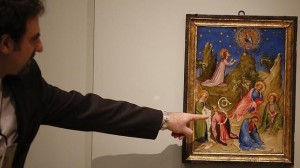
Bowing to a campaign that gathered one-and-a-half million signatures, the People’s Party this week dropped its opposition to a debate on legislation intended to mitigate the social and financial impact of home evictions. The parliamentary initiative follows a rise in suicides associated with mortgage foreclosures – a shocking barometer of the human cost of economic austerity.
Under the new measures, social housing would be made available to families that have been evicted, and mortgages would be cancelled when homes are handed over to the bank.
Some argue that market forces will restore prosperity as long as they are allowed to work and that remedial social programmes are no more than a temporary fix – a view reflected in the characterisation of mortgage-related evictions as simply a “side effect” of turning the economy around.
A contrary argument is that the pain has been too protracted and too deep, and the gain has been too modest and too slow – an eventual (and uncertain) return to prosperity is not a satisfactory trade for a catastrophic spike in poverty and personal ruin.
This week’s unexpected parliamentary consensus on discussing measures that could bring relief to hundreds of thousands of families but which at the same time would fundamentally alter the contractual relationship between a bank and a mortgage-holder suggests that blind faith in the market is no longer viewed as being politically viable.
Tuesday’s volte face by the governing party – generally presented as a tactical expedient – may yet come to be seen as a significant political turning point.
A complicated path
And it may have coincided with a turning point in the economy.
A recommendation issued this week by investment bank Morgan Stanley suggests that the successful stabilisation of Spain’s public finances in 2012 together with measures to improve the business environment have put the country in a position to replace Germany as an engine of export-led growth in the eurozone.
If not the first green shoots of recovery, then certainly the first green shoots of investor confidence.
President of the European Central Bank Mario Draghi was similarly upbeat during a “listening” visit to Madrid this week, though Mr Draghi tempered his positive remarks about Spain’s prospects when he acknowledged that “adjustments are still not producing visible improvements in the everyday lives of citizens”. The ECB President urged “patience” as Spain follows “a very complicated path”.
Ahead of talks with Mr Draghi, Prime Minister Mariano Rajoy assured a conference of economic analysts and investors that the reforms undertaken by his administration are working and he predicted that GDP will start growing again in the second half of this year.
Back in the picture
Meanwhile, a 15th-century painting that has just gone on show in Madrid has brought a mediaeval French nobleman back into the picture, raising interesting questions about how once mighty individuals are remembered by posterity.
Restoration work on Prayers in the Orchard revealed two hidden figures – Saint Agnes and Louis of Orleans, brother of Charles the Mad. Louis was among the guardians of his unstable brother, along with Philip the Bold, Louis the Good and John the Magnificent, but in 1407 he fell foul of his cousin, John the Fearless, who rather brazenly had him dispatched at the point of an assassin’s knife in downtown Paris during rush-hour.
Louis’s departure from art was as precipitate as his departure from life. At some point in the last 600 years, possibly during the French revolution when royalty was at a low ebb, he and Saint Agnes were covered up by a not particularly picturesque bit of landscape. The landscape has now been cleared away and, as of this week, Louis and Saint Agnes can be seen again by visitors to the Prado.
If the mediaeval penchant for nicknames were to come back into fashion, President Draghi might be known as Mario the Magician, for his role (so far) in dispelling uncertainty about the eurozone (and Spain’s place in it).
As for Mariano Rajoy – epithets spring to mind, of course, not all of them positive.
Too early to say what will stick, but this week’s promise of a political and economic turn could favour the positive over the negative.
To read more by Anna Maria O’Donovan visit My Spanish Interlude.
Leave a Reply
You must be logged in to post a comment.